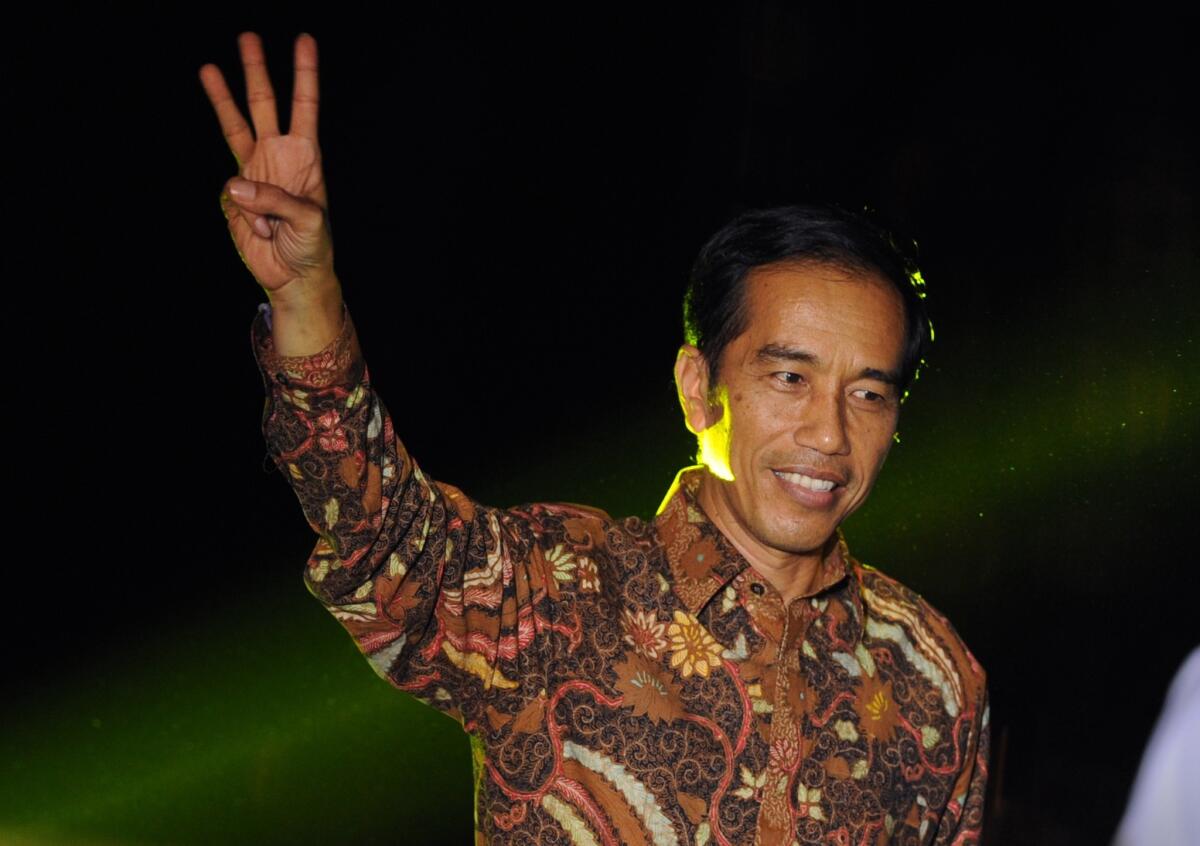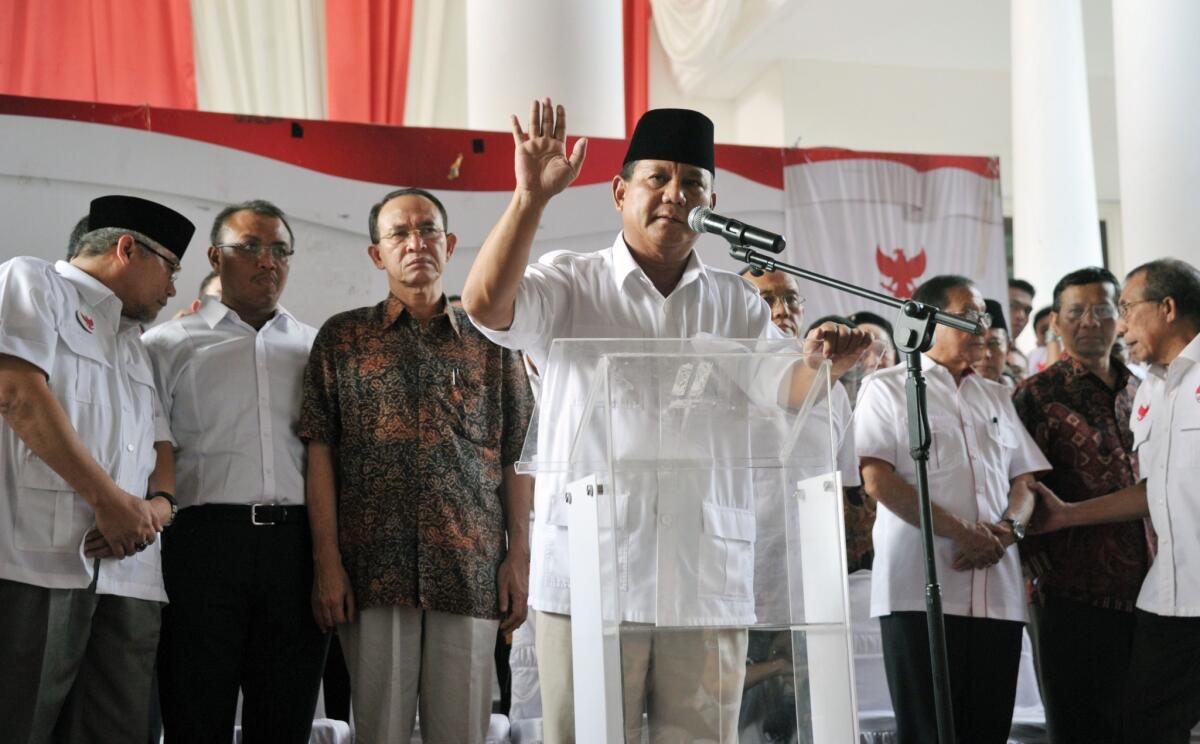Story So Far: Understanding Indonesia’s presidential election
- Share via
After weeks of ballot-counting, Indonesia’s elections commission released the official results from the country’s presidential election, the first with a non-incumbent candidate in 10 years.
Who won Indonesia’s presidential election? Full story >
Joko Widodo, the governor of Jakarta, was elected president, according to the country’s elections commission. Widodo, who gathered more than 53% of the vote, defeated Prabowo Subianto, a former general, who gathered 46.8% of votes. Though elections were held on July 9, the commission completed the formal vote count Tuesday.
Who were the candidates in the election?

Indonesian presidential candidate Joko Widodo gestures after delivering his victory address.
(ROMEO GACAD / AFP/Getty Images)
Joko Widodo (Getty)
Widodo, who goes by the nickname “Jokowi,” has had a meteoric rise in Indonesian politics. Widodo, who just turned 53, began his political career as a mayor in the country’s Central Java province in 2005 after working in business. He quickly rose to become governor of Jakarta, the capital city that is also a province.
Subianto was a general in the Indonesian military under the country’s longtime leader Suharto and was later linked to wartime crimes.

(BAY ISMOYO / AFP/Getty Images)
Prabowo Subianto (Getty)
Subianto campaigned against increasing foreign investment in the country, and emphasized his experience in public affairs, according to an analysis by the Lowy Institute for International Policy, an Australia-based think tank.
Subianto was highly critical of the electoral process and has rejected the results. "We reject the 2014 presidential election which is illegitimate and therefore we withdraw from the ongoing process," he said, according to the Associated Press.
Why was the election so important?
Indonesia is a majority Muslim nation of more than 6,000 inhabited islands with a diverse mix of ethnicities, religions and languages. The island nation has a history of political upheaval, including coups. For three decades, the country was ruled by Suharto, whose family remains powerful in the country. Subianto, in fact, is related by marriage to Suharto.
Indonesia has only experienced Western-sanctioned democracy for a little more than a decade, since Suharto was overthrown by popular protests. This presidential election marks the first poll in 10 years in which Indonesian voters were able to choose a candidate other than the country’s incumbent president. The current president, Susilo Yudhoyono, reaches his two-term limit this year.
What does Widodo’s election mean for Indonesia?
After one of the closest races in the country’s history, Indonesia has been able to manage an orderly election from a blend of multiple ethnicities and religions, said Karen Brooks, a fellow at the Council on Foreign Relations.
Brooks said she believes Widodo’s election marks a turning point for the country.
"Indonesia has proven it deserves the place it has carved for itself as an open, tolerant, democratic Muslim democracy,” she said, noting that citizens largely rejected smear attempts during the hard-fought electoral campaign.
Widodo, who is one of the country’s first high-profile politicians without ties to the Suharto regime or political elites, represents a new face in Indonesian politics.
“He is the quintessential outsider,” Brooks said.
While his lack of political background may be an electoral asset, his early-term accomplishments will likely be modest, Brooks noted.
But some regional experts question whether he has the political background needed to lead one of the world’s most populous nations. An April editorial in the Jakarta Post highlighted his inexperience on the national stage and raised concerns that the country could be led astray by an untested leader.
Sign up for Essential California
The most important California stories and recommendations in your inbox every morning.
You may occasionally receive promotional content from the Los Angeles Times.







